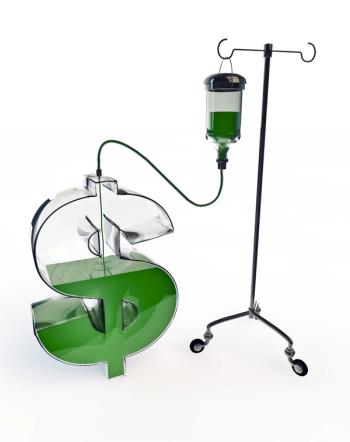
Updates to the National Comprehensive Cancer Network guidelines on the COVID-19 vaccine for patients with cancer indicate that this group should be prioritized for a third dose.

Your AI-Trained Oncology Knowledge Connection!


Hayley Virgil is a senior editor with CancerNetwork. When she isn't traveling to conferences and championing health equity in the oncology space, she can be found hiking, foraging wild plants, gardening, sewing ballgowns, practicing embroidery, or playing video games.

Updates to the National Comprehensive Cancer Network guidelines on the COVID-19 vaccine for patients with cancer indicate that this group should be prioritized for a third dose.

Atezolizumab will no longer be available for the treatment of patients with PD-L1–positive triple-negative breast cancer following withdrawal of the indication by the agent’s developer.

The phase 2 CAVE trial indicated that a combination of cetuximab and avelumab is a promising rechallenge treatment for patients with RAS wild-type metastatic colorectal cancer.

Patients with hematologic malignancies may be at a higher risk for breakthrough infections following full COVID-19 vaccination.

Oncomine Dx Target Test is now approved by the FDA as a companion diagnostic for patients with IDH1-mutant cholangiocarcinoma who may be candidates for treatment with ivosidenib.

Ivosidenib has received approval from the FDA for patients with IDH1-mutated cholangiocarcinoma.

Tebentafusp has demonstrated promising responses in metastatic uveal melanoma, leading to FDA and European Medicines Agency approval of a biologics license application and marketing authorization application for the agent.

The FDA issues a warning regarding the use of robotically-assisted surgical devices for mastectomy procedures related to breast cancer.

Pembrolizumab, gemcitabine, vinorelbine, and liposomal doxorubicin appears to be a successful bridging regimen for patients with relapsed/refractory classical Hodgkin lymphoma.

Pfizer’s COVID-19 vaccine, Comirnaty, becomes the first fully FDA-approved vaccine against the COVID-19 virus.

Priority review for a biologics license application for prophylactic abatacept has been granted by the FDA to help prevent the occurrence of severe graft-versus-host disease for patients undergoing hematopoietic stem cell transplant from an unrelated donor.

The FDA has approved nivolumab for patients with high-risk urothelial carcinoma regardless of previous treatment with neoadjuvant chemotherapy, nodal involvement, or PD-L1 status.

FT596 and FT516 natural killer cell products elicited promising responses in a population of patients with B-cell lymphoma.

Findings from the phase 2 DART trial demonstrated that the combination of ipilimumab and nivolumab may have potential for the treatment of patients with angiosarcoma.

The VENTANA MMR RxDx Panel is the first FDA-approved companion diagnostic for identifying patients with DNA mismatch repair–deficient solid tumors who might benefit from treatment with dostarlimab-gxly.

Investigators theorize that a filgrastim-sndz biosimilar is an affordable option for patients across a number of tumor types who are undergoing curative intent treatment with chemotherapy and have an intermediate risk for experiencing febrile neutropenia.

The folate receptor α–targeting antibody-drug conjugate STRO-002 has a fast track designation from the FDA for advanced, platinum-resistant ovarian cancer following 1 to 3 prior lines of therapy.

Gut microbes may help to predict adverse effects and outcomes in patients with advanced melanoma who are being treated with dual immune checkpoint inhibitors.

New findings indicate that an increased intake of vitamin D may help to prevent the development of early-onset colorectal cancer in individuals under the age of 50.

The FDA has granted IN10018 a fast track designation for the treatment of patients with platinum-resistant ovarian cancer.

Investigators identified an improvement in median progression-free survival among patients with recurrent or metastatic nasopharyngeal carcinoma who were treated with camrelizumab plus gemcitabine and cisplatin vs placebo plus gemcitabine.

Transgender individuals may be more likely to develop breast cancer than cisgender men; guidelines need to be established and institutions need to eliminate discrimination to encourage higher breast cancer screening rates for this population of patients, investigators said.

The use of belzutifan has been approved by the FDA for patients with cancer that is associated with von Hippel-Lindau disease who do not need immediate surgery.

Although healthy patients do not currently require a third dose of the vaccine, the FDA has authorized the use of an additional dose of the Pfizer or Moderna COVID-19 vaccines for individuals who are immunocompromised.

One in 3 popular cancer articles on social media contain potentially harmful misinformation, according to a report published in the Journal of the National Cancer Institute.

The combination of pembrolizumab plus lenvatinib received approval by the FDA in the first-line setting for patients with advanced renal cell carcinoma following the results of the phase 3 CLEAR trial.

According to the results of the phase 2 KEYNOTE-629 trial, patients with locally advanced or recurrent/metastatic cutaneous squamous cell carcinoma appear to receive promising anti-tumor benefit from pembrolizumab.

Treatment with ibrutinib with or without rituximab was associated with a lower monthly health care cost compared with chemoimmunotherapy in a population of patients with relapsed/refractory mantle cell lymphoma.

United States Military Health System beneficiaries with colon cancer are more likely to have improved survival outcomes vs the general population, with a particularly notable benefit in Black patients.

A priority review to a biologics license application has been granted by the FDA for adjuvant pembrolizumab in certain populations of patients with renal cell carcinoma who have undergone surgery.